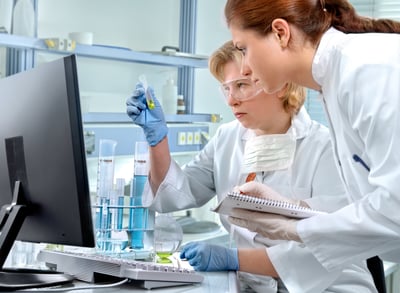Endometrial Cancer



Relevance: Medium-High
Most relevant for: People diagnosed with cancer
Study: Financial burden affects quality of life of cancer survivors
Cancer-related financial burden can keep survivors from getting the care that they need, yet how this burden affects mental and physical health is still unknown. A study found that almost one-third of cancer survivors report having financial burden; those most likely to be affected were under age 65, female, members of racial or ethnic minority groups, and people who lack access to adequate insurance. (5/17/16)
READ MORE ›


Relevance: Medium-High
Most relevant for: People living with metastatic cancer
Study: Factors that affect the ability to work in people with metastatic cancer
Some patients who live with metastatic cancer either want or need to continue working while coping with symptoms of their disease and treatment. A recent study that looked at over 600 people with metastatic breast, prostate, colon, or lung cancer found that about one-third of them continue working full or part time. People most likely to continue working were those undergoing hormonal treatment and those with less severe symptoms or side effects from treatment. (4/12/16)
READ MORE ›


Relevance: Medium
Most relevant for: People diagnosed with breast cancer
Article: New York Times report demonstrates need for genetic counseling, but doesn’t give the whole story
A New York Times report discussed how genetic testing could provide “grim data” without guidance for patients. While this is a valid concern, this report does not sufficiently emphasize certain important issues regarding genetic testing, particularly the need for genetic counseling by a health care provider with expertise in genetics before and after genetic testing. (4/5/16)
READ MORE ›


Relevance: Medium
Most relevant for: People diagnosed with cancer
Study: What are the genetics underlying 12 different cancer types?
As gene sequencing has become more affordable, researchers and health care providers are now looking for mutations in many genes beyond BRCA1, BRCA2 and others that are associated with known hereditary cancer syndromes. By sequencing thousands of genes rather than just one or two, researchers can better understand which inherited mutations affect cancer risk. In this study, researchers sequenced thousands of genes in patients with one of 12 cancers, including breast, and catalogued which gene mutations are most commonly found in each cancer. (03/01/16)
READ MORE ›


Relevance: Medium
Most relevant for: Survivors of childhood cancer and people with a family history of relatives diagnosed with childhood cancers
Study: How many children with cancer have mutations in genes that increase cancer risk?
Many genes are associated with increased cancer risk in adults, but it is unclear how common these mutations are in children with cancer. This study found that about 9% of children with cancer carry mutations in a gene that is known to increase cancer risk. Over half of the mutations were in the TP53 gene, which is associated with increased cancer risk at a young age and increased risk of breast cancer in adults. (12/15/2015)
READ MORE ›


Relevance: Medium-High
Most relevant for: Women who were diagnosed with breast cancer while pregnant
Study: Effects of cancer diagnosis and treatment during pregnancy on the health and development of the child
Very little work has studied how a woman's cancer diagnosis and treatment during pregnancy affects her child. This study of women who were diagnosed with cancer while pregnant looks at their children at ages 18 months and 3 years. The study found no difference in general, cognitive, and cardiac development when compared to children born to healthy mothers. (12/08/2015)
READ MORE ›


Relevance: Low
Most relevant for: The clinical relevance of this study for people is not clear
Study: Do antioxidants encourage the spread of cancer cells?
Scientists do not yet know why some cancers spread to other parts of the body (a process called metastasis). A study in mice suggested that high doses of some antioxidants (chemicals that can protect cells from damage) might actually make it easier for cancer cells to spread. (12/01/2015)
READ MORE ›


Relevance: Low
Most relevant for: Because this video is full of medical misinformation, it is not relevant for anyone making healthcare decisions
Article: What “The Truth About Cancer” got wrong about BRCA mutations and cancer
A website called thetruthaboutcancer.com, created a 9-part docu-series titled “The Truth About Cancer: A Global Quest” (TACGQ). The video states that Angelina Jolie’s decision to remove her breasts was one made out of fear; one commentator states that her decision was “barbaric." This video contains a lot of dangerous misinformation about BRCA mutations and inherited cancer. FORCE XRAYS provides the following point-by-point analysis on "The Truth About Cancer." (11/10/2015)
READ MORE ›


Relevance: Medium-High
Most relevant for: Young women and girls from high-risk breast cancer families
Study: Impact of familial breast cancer risk on young girls
Does growing up in a family that is at high risk for breast cancer affect young girls? Recent research found girls from families with BRCA mutations and/or a strong family history of cancer to be as well adjusted as peers of the same age. The one difference was that girls from families facing breast cancer risk had more stress related to breast cancer than their peers. While these findings are reassuring, parents know their children best, and they should ask for help if they believe their daughters are not coping well. (11/03/2015)
READ MORE ›